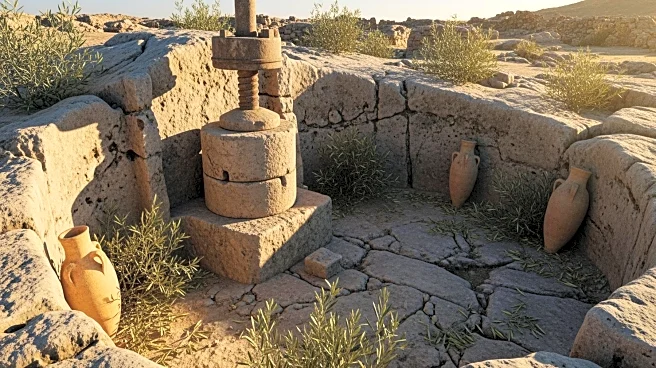What's Happening?
Archaeologists have uncovered the Roman Empire's second-largest olive oil processing complex in Tunisia, highlighting the region's role in olive oil production and trade from the 3rd to 6th centuries AD.
The site, located in the Kasserine region, features a monumental torcularium with twelve beam presses and a second plant with eight presses. The discovery includes artifacts such as a decorative bracelet and architectural elements, providing insights into the agricultural and economic systems of Roman Africa. The complex's location and infrastructure suggest it was a hub for social, political, and religious activities.
Why It's Important?
The excavation of this olive oil complex offers valuable information about the economic and agricultural practices of the Roman Empire, particularly in North Africa. Olive oil was a crucial commodity, used not only for cooking but also for personal care and lighting. Understanding the scale and organization of production facilities like this one helps historians and archaeologists piece together the economic networks and trade routes of the time. The findings contribute to the broader narrative of Roman influence in Africa and the development of agricultural technologies that have persisted through the centuries.








